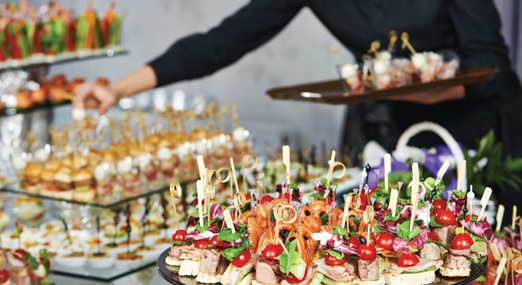Many people who think they cook well simply have the interest to start a catering business of their own. But only having great cooking skills does not mean you have what it takes to become a catering entrepreneur
Becoming a successful caterer requires a combination of skills such as planning, organizing, time management, consistency, and creativity. A caterer also needs to be ready for challenges because providing food in different events and venues requires the ability to work under various conditions.
The catering business is still one of the most flexible of all food businesses since it can be started without too much investment or space. However, in order to pursue your dreams of becoming a successful caterer, you need a step by step pre-launch research plan.
In this article, I will discuss the 6 steps to begin your journey as a caterer.
- Market/Area Research
The first step in planning to start a catering business is to research the marketplace. For instance, you need to have clear information of who else is providing catering service in your area, menus and services they are offering. Additionally find out what they charge and what type of customer they serve. A good way to find most of this information is by visiting their websites. Another way to get information is by asking your friends and family about what they like or dislike about various caterers they used in the past.
When people order catering they look for many factors such as affordability, unique menus, convenience, good management and process among others. Since your goal is to compete with other caterers, you need to combine all of these into your service.
- Potential Customer Identification
Okay, now you would want to know what are the things your potential customers are looking for in a catering provider. The best way to learn this information is by cold calling a few potential customers and ask them a few questions about what they want a caterer to deliver in terms of service and dishes. It is wise to take your time so that you can contact the right person at each company.
It will also help you in knowing not only the food requirements of potential customers but will also help you to know what the corporate customers wants apart from food such as staffing, set up, presentation, delivery etc. You may find out the budgets of these companies and if they use catering service often. This information will help you in knowing customers needs and also creates a good relationship between you and the customers before beginning.
Another good way to identify customers is to search on Google or Bing. Be specific on your search and you will lots of results of potential customers. You can may them or send them an email. If you have the budget you can also invest in Google Display ads, pay-per-click and social media marketing. They will all bring you good leads.
- Choosing a niche
You can choose what you want to offer your customers now once you have already done the marketplace research. You should know by now who your potential customers are and your price range. You can either go broad and try to service everything to everyone or you can narrow your offering to service a specific niche.
A few examples of niche options for a small caterer: Corporate events catering, cocktail parties, executive luncheons, golf outings, weddings, children’s parties, birthdays, holidays, dinner parties, boxed lunches, pre-cooked means, festivals catering, sports events and more.
So choose your niche based on the customers who are your primary targets for selling your catering service. Also research a niche that is under serviced by current suppliers.
- Common small business basics
Most entrepreneurs have some common tasks to perform before starting up a business. You may need to get a business permit, an office, get a website, select an event management software, email address and liability insurance. These are just some of the things that you need to tick before starting a catering business. You may also need a food certification by meeting necessary standards such as kitchen, storage, transportation, and serving equipment if your region requires one. Some states also require you to complete a course on food to become a certified food manager.
- Budget
Your next step is to budget for your various cooking equipment, kitchen, office, marketing materials to determine how much it will cost to start your business and proceed accordingly. A business cannot flow without investment so it is essential to spend to start your business at the very best condition. However, try to minimize the cost whenever it is possible.
- Documentation and Process
Now that you have gathered almost all the information required for starting your business, it is a wise idea to keep a documentation of all the information and have processes in place. By keeping business documentation, you are enabling yourself to access them whenever any business related question arises in your mind. In addition you should great process for the day-to-day operation from how you enter sales enquiries to how every dish should be prepared, packed and dispatched. Don’t leave this to the imagination of each person in the business. Create the process, train the staff, stick to the process and continue to improve it as the business evolves.
So these were the 6 steps to begin your catering business. Take your time in planning before starting your catering business so that you have some knowhow into the industry before jumping into your dream business.

